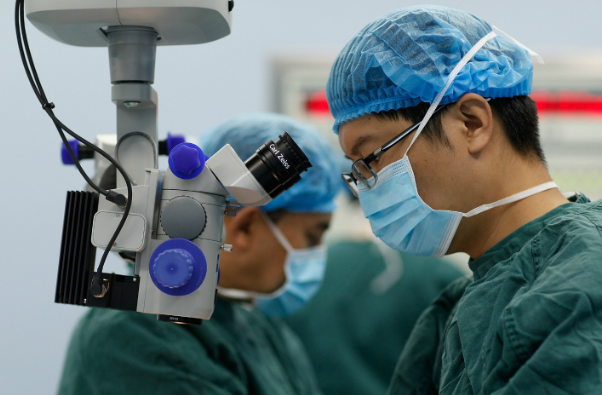How long does it take to be a neurosurgeon in China:Becoming a neurosurgeon in China typically requires at least five years of medical school and another six to eight years of specialized training.
Table of Contents
Educational Requirements for Neurosurgeons in China
Undergraduate Medical Education
To become a neurosurgeon in China, an individual must first complete an undergraduate medical education. This typically involves a five- to six-year Bachelor of Medicine program, focusing on basic medical sciences and clinical skills. Students gain foundational knowledge in anatomy, physiology, biochemistry, and pharmacology, crucial for any medical specialty. The program also includes rotations in various medical departments, providing exposure to different fields including neurology and surgery.

Postgraduate Training and Specialization
After obtaining their medical degree, aspiring neurosurgeons must undergo postgraduate training. This phase involves a residency program in neurosurgery, which can last from five to eight years. During this period, residents develop specialized skills in neurosurgical procedures, patient care, and diagnosis of neurological disorders. The residency includes extensive hands-on training in operating rooms, alongside experienced neurosurgeons, and participation in research projects is often encouraged.
Additional Qualifications and Certifications
Additional qualifications are essential for neurosurgeons in China. After completing their residency, neurosurgeons must pass a rigorous certification exam to practice independently. They are also encouraged to pursue further sub-specialization in areas such as pediatric neurosurgery, spinal surgery, or neuro-oncology, which may require additional years of fellowship training. Continuous medical education is vital for neurosurgeons to stay updated with the latest surgical techniques and advancements in neurological science.
Duration of Medical Education and Training
The journey to becoming a neurosurgeon in China encompasses extensive education and training, which spans over many years, demanding dedication and resilience.
Years in Medical School
Medical education in China begins with a Bachelor of Medicine program, typically lasting five to six years. This program offers comprehensive training in medical sciences and clinical skills. Here are ten notable medical schools in China:
| University | Location | Program Duration (Years) | Focus Areas |
|---|---|---|---|
| Peking University Health Science Center | Beijing | 5-6 | General Medicine, Biomedical Sciences |
| Shanghai Jiao Tong University School of Medicine | Shanghai | 5-6 | Clinical Medicine, Medical Research |
| Zhejiang University School of Medicine | Hangzhou | 5-6 | Medical Sciences, Clinical Practice |
| Fudan University Shanghai Medical College | Shanghai | 5-6 | Clinical Medicine, Health Care |
| Sun Yat-sen University Zhongshan School of Medicine | Guangzhou | 5-6 | General Medicine, Surgery |
| Huazhong University of Science and Technology Tongji Medical College | Wuhan | 5-6 | General Medicine, Biomedical Engineering |
| Sichuan University West China School of Medicine | Chengdu | 5-6 | Clinical Medicine, Medical Research |
| Harbin Medical University | Harbin | 5-6 | Medical Sciences, Public Health |
| Xi’an Jiaotong University School of Medicine | Xi’an | 5-6 | Clinical Medicine, Biomedical Research |
| Nanjing Medical University | Nanjing | 5-6 | General Medicine, Health Services |
Residency Training Duration
After completing medical school, aspiring neurosurgeons enter residency programs, which are integral for specialization. This phase typically extends over five to eight years. It involves intensive training in neurosurgical techniques, patient management, and diagnosing neurological conditions. Residents gain practical experience through rotations in various neurosurgical units, handling complex surgical cases under supervision.
Fellowship and Further Specialization
For those seeking further specialization in areas like pediatric neurosurgery or neuro-oncology, fellowships are available. These programs, often lasting one to three years, provide advanced training and research opportunities, enabling neurosurgeons to develop expertise in specific subfields.
Licensing and Board Certification Process
The journey to become a licensed and board-certified neurosurgeon in China involves several critical steps, each demanding a high level of expertise and dedication.
Medical Licensing Examination in China
After completing medical school, graduates must pass the National Medical Licensing Examination (NMLE) to practice medicine in China. This examination tests a wide range of medical knowledge and skills.
- Examination Structure: The NMLE consists of two parts – a written test covering theoretical knowledge and a practical skills assessment.
- Content Areas: It includes subjects like internal medicine, surgery, gynecology, pediatrics, and public health.
- Passing Criteria: The examination has stringent passing criteria to ensure that only competent individuals enter the medical profession.
Neurosurgery Board Certification Requirements
Post residency, neurosurgeons must obtain board certification to practice neurosurgery independently.
- Certification Process: Candidates must pass a comprehensive exam that evaluates their neurosurgical knowledge and skills.
- Continued Education: Neurosurgeons must engage in continuous learning, often through conferences and seminars, to stay updated with the latest advancements in the field.
- Ethical Standards: Adherence to ethical standards is crucial, and candidates must demonstrate a strong understanding of medical ethics.
Clinical Experience and Hands-On Training
Acquiring clinical experience and hands-on training is a pivotal phase in the journey of becoming a neurosurgeon. This period allows medical graduates to apply theoretical knowledge in real-world settings and develop practical skills essential for their career.
Hospital Internship and Residency Programs
The first step after medical school is an internship followed by a residency program, where graduates gain hands-on experience in various medical settings.
- Internship Phase: Typically lasting one year, interns rotate through different medical specialties, including surgery, internal medicine, and emergency care. This phase provides a broad understanding of various medical conditions and their treatments.
- Residency in Neurosurgery: After completing the internship, the next step is a neurosurgery residency program. This extensive program can last five to eight years, offering in-depth training in neurosurgical procedures and patient care.
- Rotations and Responsibilities: Residents rotate through various subspecialties of neurosurgery, such as spinal surgery, pediatric neurosurgery, and neuro-oncology. They gradually take on more responsibilities, starting from observing surgeries to assisting and then performing surgeries under supervision.
Advanced Surgical Techniques and Practical Training
In addition to routine surgeries, residents are trained in advanced neurosurgical techniques.
- Minimally Invasive Procedures: Training in minimally invasive techniques, which involve smaller incisions and lead to quicker patient recovery.
- Technological Proficiency: Emphasis is placed on mastering the use of advanced neurosurgical equipment, such as intraoperative MRI and neuro-navigation systems.
- Research and Innovation: Residents are encouraged to participate in research projects, contributing to innovations in neurosurgical methods and treatments.

Continuing Medical Education and Skill Upgradation
For neurosurgeons, the learning process extends beyond formal education and training. Continuing Medical Education (CME) and skill upgradation are essential components of their professional development, ensuring they remain at the forefront of medical advancements and patient care practices.
Mandatory Continuing Education for Neurosurgeons
In China, continuing medical education is a mandatory requirement for neurosurgeons to maintain their medical license and board certification.
- Regular Updates: Neurosurgeons must engage in CME activities periodically. These include attending lectures, seminars, and conferences that cover the latest research and developments in neurosurgery.
- CME Credits: A certain number of CME credits must be earned within a specific timeframe, typically annually or biennially, to fulfill licensing requirements.
- Diverse Learning Modules: CME programs offer a range of learning modules, from online courses to live workshops, catering to different learning preferences and schedules.
Advanced Courses and Workshops
Advanced courses and workshops provide neurosurgeons with opportunities to learn and master new surgical techniques and technologies.
- Specialized Training: Workshops often focus on specific areas like minimally invasive neurosurgery, neuro-oncology, or spinal surgery, allowing surgeons to deepen their expertise in particular subfields.
- Hands-On Experience: Many workshops offer practical training using simulation models or cadaver labs, providing a safe environment to practice new techniques.
- Networking Opportunities: These events are also crucial for networking, allowing neurosurgeons to connect with peers and experts in the field, fostering collaborations and knowledge exchange.

